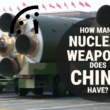In fear, latent hope
By Robert Mtonga, October 24, 2013
In his final Roundtable essay, Jaime Aguirre Gómez mentioned my earlier assertion that advocates for disarmament must provoke rational fear in others. Aguirre wrote that I was correct—but that no one benefits from a situation in which fear is rational and necessary.
Nature inclines human beings to engage in rational behavior when they perceive that rationality will bring them benefit. The German philosopher Immanuel Kant, in his essay "Toward Perpetual Peace," argued that even a race of devils could be organized to behave in mutually beneficial ways, provided they were capable of thought.
But can fear really be rational? The medical physiology of fear is that it prepares an endangered individual to fight or take flight. In many instances, fear inspires sound responses that are proportionate to the danger faced. That is rational fear. In other instances, it provokes irrelevant, disproportionate, or even counterproductive actions. This sort of fear is irrational—not the sort that should be marshaled to support arguments for disarmament. So the trick for organizations like the International Physicians for the Prevention of Nuclear War (IPPNW), of which I am co-president, is to use fear to inspire sound, proportionate responses to the existence of nuclear weapons. Representatives of IPPNW utilize rational fear in the same spirit that a doctor practices preventive medicine.
A man who ignores his doctor’s advice that he must change his diet to avoid diabetes, then goes on to develop this disease, may eventually modify his diet despite having rebuffed his doctor’s advice at first. This is rational behavior, albeit a bit tardy. But other individuals within the patient’s circle of acquaintances may learn from his negative experiences and change their own diets before diabetes afflicts them. For doctors, it is common to observe patients converting rational fear into objective, positive actions, and reaping benefits from doing so. In these instances, fear has a purpose. It works in the service of hope.
IPPNW likewise utilizes fear to spread hope, to use the significant respect that doctors command to educate audiences about the humanitarian horror of nuclear weapons. But it is important that this effort not be accompanied by excessive drama or sensationalism—by fearmongering. This would only provoke irrational fear. The plain facts of the Hiroshima and Nagasaki bombings are powerful, and plain for all to see. The facts are convincing enough that, for many audiences, only one conclusion is possible: that nuclear weapons must be eliminated forever.
Sometimes it seems that the media, and ordinary people as well, have grown fatigued of disarmament’s central argument, that nuclear war could annihilate the human race. But as this Roundtable has emphasized, even a single detonation would represent a humanitarian catastrophe. International Physicians for the Prevention of Nuclear War is persuaded that the clock toward catastrophe is still ticking—and the minute hand is accelerating.
IPPNW’s diagnosis is that nuclear weapons are bad for your health. Appropriate treatment consists of fighting for the elimination of these weapons. Won’t you trust your doctor?
Topics: Nuclear Weapons
Share: [addthis tool="addthis_inline_share_toolbox"]














